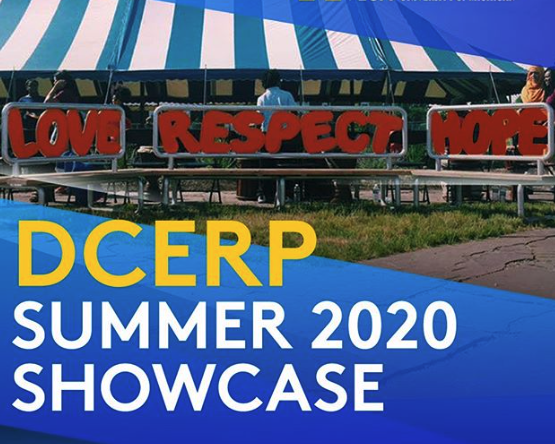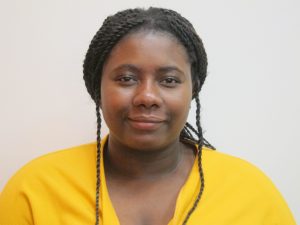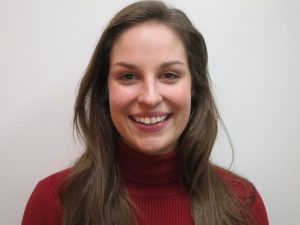Source: Michigan News

 Nine weeks in the Detroit Community-Engaged Research Program went much too fast for many of the 20 University of Michigan students who participated in the project showcase via Zoom on Wednesday.
Nine weeks in the Detroit Community-Engaged Research Program went much too fast for many of the 20 University of Michigan students who participated in the project showcase via Zoom on Wednesday.
More Info
The Detroit Community-Engaged Research Program, or DCERP, is a social justice focused summer fellowship program run through U-M’s Undergraduate Research Opportunity Program. UROP introduces students to academic and community-engaged research as undergraduates.
The students worked full-time for nine weeks with a Detroit community organization on projects virtually this year. The program also includes sessions to learn about the history and impact of social justice in Detroit.
Students shared their experiences on projects and reflected on what it was like working remotely during the coronavirus pandemic and Black Lives Matter protests.
Ray Wang, the Director of the DCERP Fellowship, said that in addition to working with Detroit nonprofits the students “formed an intentional community that learned about Detroit history and explored related social justice topics together.”
The switch to a remote format just before the program started was challenging, it also helped show students what community engagement could look like.
“While our students were initially disappointed, they were an asset to the Detroit non-profits during a time of increased need, and they also still seemed to bond with each other,” Wang said.
Highlights from the student presentations included:

Ysabel Bautista
- Ysabel Bautista, senior, majoring in Biopsychology, Cognition, and Neuroscience on the pre-med path, worked with HOPE Village Revitalization, a community-development corporation serving the HOPE Village neighborhood on the northwest side of Detroit. She evaluated the fresh local food programs and weekly Farmers Market, created marketing tools to advertise the market and local health initiatives, analyzed vendor, customer, and food assistance data, and found volunteers for the community garden and market. “It was a gratifying opportunity to reduce the impact of food insecurity and better the health of the neighborhood. I experienced firsthand how impactful community work can be when residents and leaders sustainably work together.”

Madgean Joassaint
- Madgean Joassaint, sophomore, majoring in sociology, worked with Detroit Public Schools Community District’s enrollment department. She researched the examination high school process and trained district ambassadors how to perform outreach in the community. “I have discovered an increased passion for researching the educational system and have even kept a catalog of research questions that have popped into my head for my own research into specialty schools and the educational system as a whole. My only wish would have been to actually meet the people in person I have worked with these last 9 weeks.”

Ruchita Coomar
- Ruchita Coomar, sophomore, interested in public policy, worked with Deadline Detroit, a grassroots local news agency. She conducted background research, worked on press releases and interviews with community officials and Black Lives Matter activists. “Deadline Detroit gave me the opportunity to be present during a pandemic. Coronavirus exposed an unjust system, propped up by weak infrastructure. Systemic racism, healthcare inequities, and wealth disparities are at the root of anger and frustration. DCERP has given my values a social justice focus, and I feel ready and re-oriented to be a part of a large-scale shift towards equity in our country.”

Rakira Urquhart
- Rakira Urquhart, sophomore, majoring in Public Health and minoring in DAAS, worked with Friends of Parkside, which is dedicated to bettering the lives of residents of The Villages at Parkside on the Eastside of Detroit. She evaluated the impact of the Dear Santa Program on Parkside residents. “To say that the last nine weeks have been stressful would be an understatement. The weekly Parkside Resource Connection Committee meetings helped keep me motivated through everything that was going on. Parkside community members are committed to bettering their community for themselves and others and seeing this encouraged me to work harder.”

Chloe Hale
- Chloe Hale, sophomore, majoring in political science and social theory and practice. She worked with Soulardarity, a nonprofit based in Highland Park. It was formed following the repossession of over 1,000 streetlights by DTE, leaving the city in the dark. Their mission is to install solar-powered street lights, help community members save money on energy bills, and build a just and equitable energy system. She researched and wrote a report for a feasibility study on a business model that Soulardarity is considering. “This was an invaluable experience for me, and I hope to continue to fight for energy democracy and be involved in grassroot organizing in my future professional career.”

Angel Phillips
- Angel Phillips, senior, majoring in Economics with a minor in Intergroup relations. She worked with Bridging Neighborhoods whose mission is to offer professional relocation, renovation, and real estate services to neighborhoods like Delray in southwest Detroit. She interviewed members impacted by the work that this program has offered and then organized data to determine how the program could improve to help community members and to determine relations of community members to the city. “Being within this program and speaking with community members has emphasized how important it is to create long lasting relationships that allow residents to not feel forgotten. I grew up in a community with few resources and few opportunities, and I knew these feelings all too well. It was fulfilling to assist people who wanted to be a part of a solution instead of ignoring the problem and this program has given me hope in the city.”

Blaine Teahan
- Blaine Teahan, senior, majoring in public health. He worked with Developing Despite Distance, or 3D, a non-profit that supports young men in Detroit who have an incarcerated parent. 3D provides letter writing workshops, group counseling, and advocacy. His project centered around building up 3Ds infrastructure for continued growth on different fronts such as creating enrollment forms, developing promotional materials, expanding social media, conducting interviews, building the website, and compiling funding possibilities. “Working with 3D made me aware of the depth of parental incarceration. 1 in 28 kids in the US have an incarcerated parent. Our systems make communication extremely difficult between incarcerated parents and their children.”
-

Jasmine Mumpfie
- Jasmine Mumpfield, sophomore, majoring in gender and health with a minor in AfroAmerican and African studies, worked with Authority Health. She researched how food security has been affected by COVID-19. “I enjoyed getting to connect and talk with people in the public health sector because it has given me more insight into what potential paths I can take career wise in the future. Participating in DCERP has been a worthwhile experience because it taught me more about what it takes to work in the nonprofit sector and what it means to be apart of the change you want to see in your own communities.”

Grace Tate
- Grace Tate, junior, double majoring in Health and Human Services with a concentration in Public Health and Business, worked with Chandler Park Conservancy, whose mission is to provide recreation and environmental stewardship opportunities to Detroit. She helped design surveys to learn the community’s perspective about the park and youths’ knowledge about environmental stewardship and also helped orchestrate youth summer and environmental camps. “I learned about nonprofits in Detroit and how much of a collaborative team effort is needed on aspects such as funding, planning, and regulations while also tackling other issues that benefit the community as a whole.”
-

Sharonda Chiangong
- Sharonda Chiangong, sophomore, majoring in Biology, Health, and Society. She worked with the Friends of Parkside on the eastside of Detroit, which works to provide different resources and assistance to residents of the Villages of Parkside, a public housing community. She helped find ways to address the needs of residents who were affected by the coronavirus pandemic. For those who couldn’t leave their homes to get food, she helped find ways to deliver food baskets to them. “This experience helped me realize I want to pursue a career in public health or one that is community-based.”

